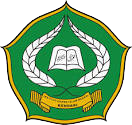- Pengajar: Ilfan Askul Pehala
- Pengajar: Ilfan Askul Pehala
- Pengajar: Ilfan Askul Pehala
- Pengajar: Ilfan Askul Pehala
- Pengajar: Suhartini Syukri
his subject will lead students to productive discussion and engagement on designing and implementing a research project, from developing a good understanding of critical issues and problems in the teaching of English as a foreign language, formulating statements of research problem, objectives, hypotheses, developing research instruments, collecting and analysis data, to interpreting the result of data analysis and drawing conclusions. These all will be discussed in the perspective of both positivistic, quantitative and interpretive, qualitative paradigms.
- Pengajar: Sitti Nurfaidah
The unit requires students to undertake bilingual translating practice that involves English texts as Texts 1 and Bahasa Indonesia (BI) as texts 2 and vice versa, all of which use graphic channels of language. It aims at providing students with pre-intermediate bilingual translating practice at the level of discourse semantics, which deals with texts that involve story and other familiar genres (e.g. story: narratives, recounts; information: reports, descriptions) and at the level of lexico-grammar, which deals with sentences/clauses, groups/phrases, words and morphemes.
- Pengajar: Dewi Atikah
In addition to disciplinary knowledge, skills
and attitudes, this unit strives to develop in its students a range of skills
and attributes which will equip them to succeed in a wide range of different
tasks and jobs and facilitate their contribution to the society they live in.
Effective professional practice requires the ability to integrate knowledge and
the different skills and attributes. This unit aims at developing, in
particular, the student’s skills with regard to: a. Communication, b. Problem
Solving, and c. Professional Ethics.
- Pengajar: Isna Humaera
In addition to disciplinary knowledge, skills
and attitudes, this unit strives to develop in its students a range of skills
and attributes which will equip them to succeed in a wide range of different
tasks and jobs and facilitate their contribution to the society they live in.
Effective professional practice requires the ability to integrate knowledge and
the different skills and attributes. This unit aims at developing, in
particular, the student’s skills with regard to: a. Communication, b. Problem
Solving, and c. Professional Ethics.
- Pengajar: Isna Humaera
The unit aims to raise teachers’ awareness of the principles and the processes of curriculum design. It examines the relationship of current trends in curriculum design to the role of needs analysis; the selection and adaptation of teaching materials and curriculum evaluation.
- Pengajar: Abdul Halim
This course gives the basic concepts of measurements and their practical applications, which comprises types of measures, criteria of good tests, principles of test construction, test administration, scoring and interpreting test scores, description about language and language learning taxonomies. Each item is presented in thematic contexts in English language and English learning achievement. During the course students will do a lot of exercises on constructing test items of English learning achievements, submit several works. Evaluation is based on the assessment of the achievement in doing the assignments, mid semester and final tests
- Pengajar: Dewi Atikah
This subject will lead students to productive discussion and engagement on designing
and implementing a research project, from developing a good understanding of
critical issues and problems in the teaching of English as a foreign language,
formulating statements of research problem, objectives, hypotheses, developing
research instruments, collecting and analysis data, to interpreting the result
of data analysis and drawing conclusions. These all will be discussed in the
perspective of both positivistic, quantitative and interpretive, qualitative
paradigms.
- Pengajar: Sitti Nurfaidah

